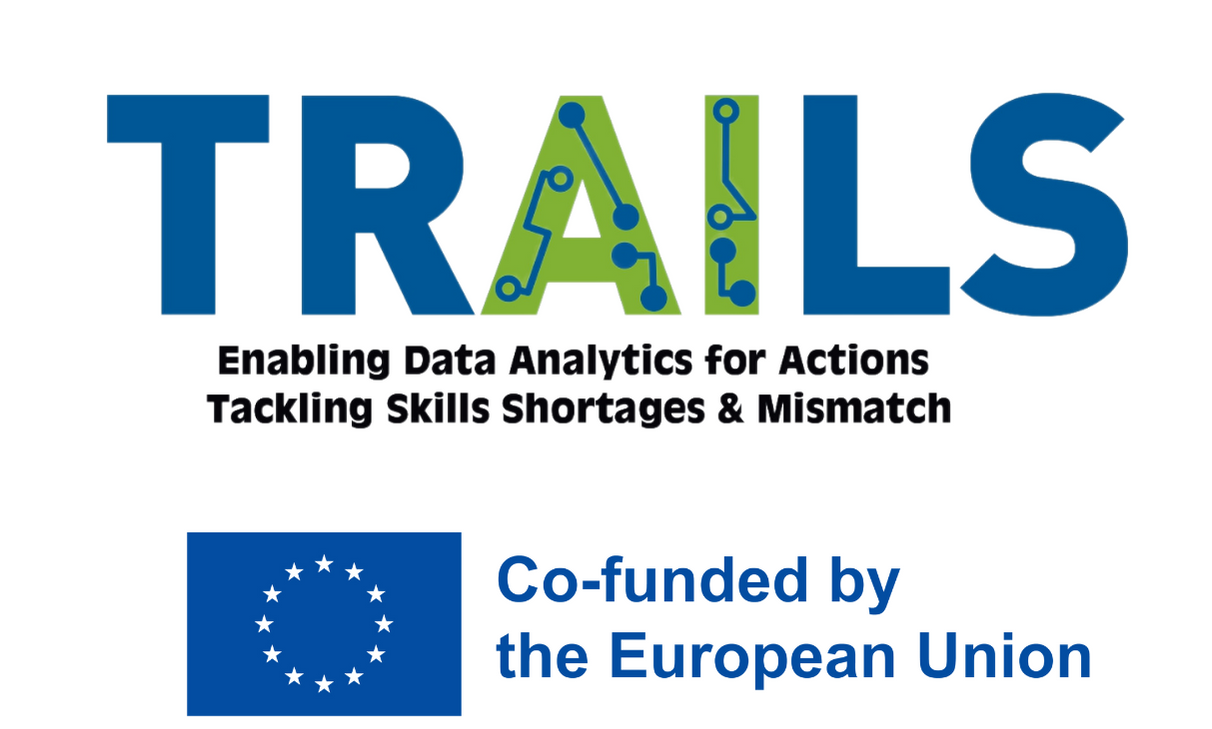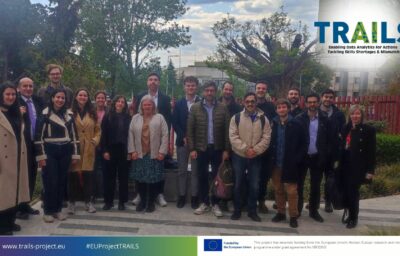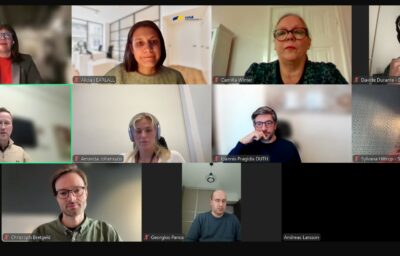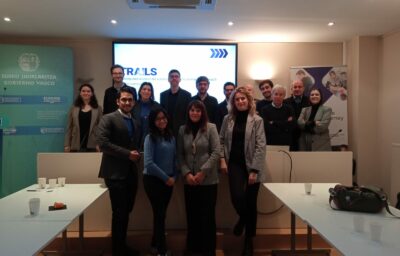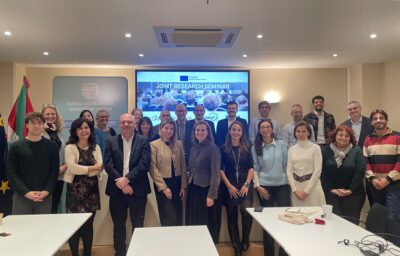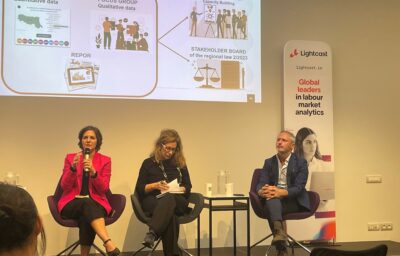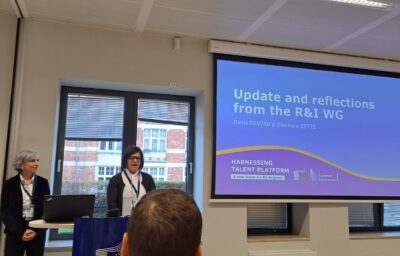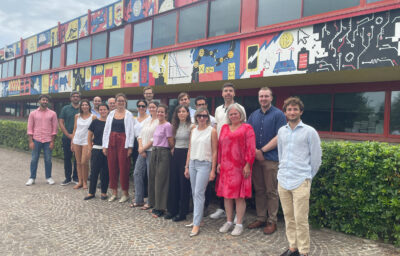TRAILS
TRAILS – Enabling data analytics for actions tackling skills shortages & mismatch
TRAILS seeks to build on current data in skills mismatches and create novel tools and databases, harnessing the power of Artificial Intelligence. It will empower Vocational and Adult Education training to match employers with educational opportunities to reallocate workers efficiently.
Motivation
TRAILs motivation is driven by the:
- urgent recognition of skills mismatch as a multidimensional challenge affecting productivity, social welfare and overall cohesion
- changing labour market requirements triggered by several external trends and shocks, such as the pandemic COVID-19 pandemic or the energy crisis.
- the need to allocate work efficiently, minimise unemployment and fill the skills gaps created by the “great restructuring”.
Scope
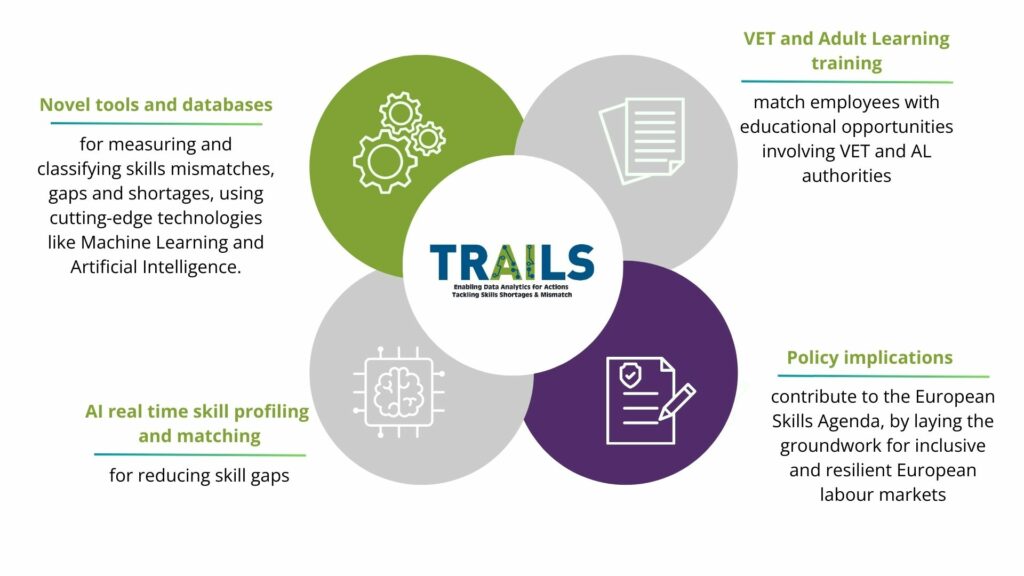
Architecture in a nutshell
The aim of TRAILS is to create a complete ecosystem that serves as a basis for research-led, policy-relevant and social impact-oriented actions. The aim is to establish the necessary conditions for the successful development of competences adapted to the needs of the European Union. The novel approach of TRAILS is that its concept is based on an open-loop architecture.
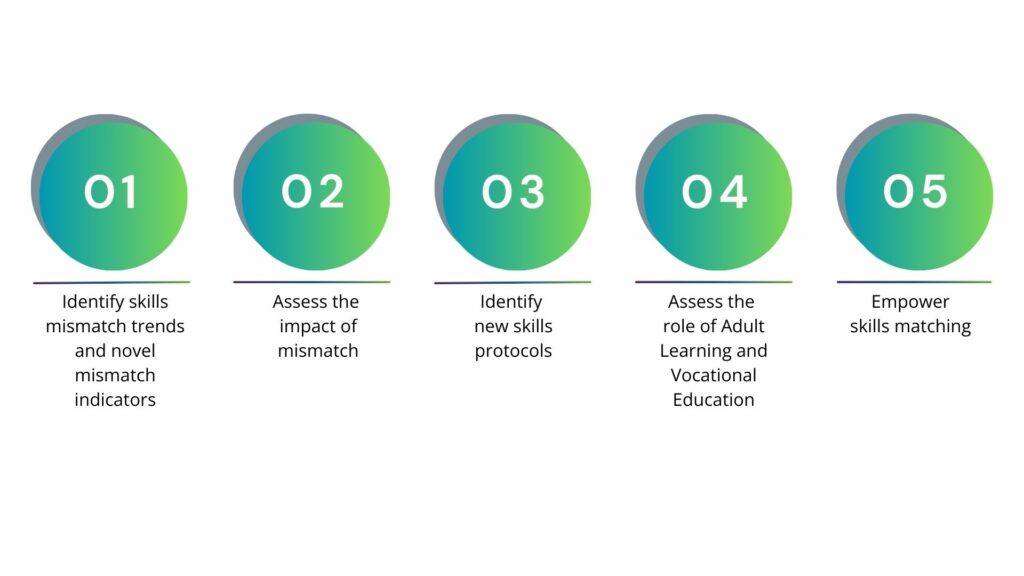
Objectives
- Generate novel European primary survey data
- Create a novel framework of analysis for identifying the main causes of labour shortages
- Enable new instruments and indicators based on Machine-Learning and Big-Data methods
- Develop new instruments of balanced training
- Initiate and improvise upon a bottom-up approach to identify the determinants of education & training choice, and enable skills profiling
- Assess the role of behavioural, social and cultural factors in the decision for participation and choice of VET & AL programmes
- Enable wide communication and scientific dissemination of the innovative results
Outputs
Among its results will be an innovative methodology to measure skills mismatches; an analysis framework of training in the area of artificial intelligence, as well as a selection of best practices for tackling skills shortages and mismatches in Europe.





